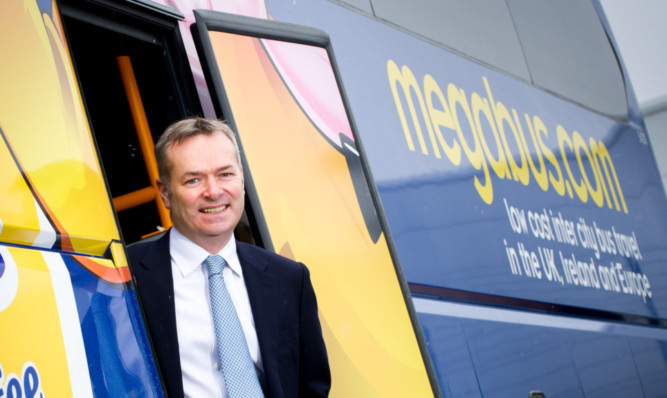The chief executive of public transport giant Stagecoach has hit out at new bus franchising proposals, saying they are a “one-way ticket” to poorer service, higher fares and local tax rises.
Shares in the Perth-based group spiked by more than 5% in early trading after Martin Griffiths delivered his damning verdict of the proposed franchising system.
His comments came after the Quality Contract Scheme Board a body chaired by Traffic Commissioner for North East England Kevin Rooney delivered its verdict on a proposed franchising model put forward by operator Nexus for the Tyne and Wear region.
The group found Nexus had failed to comply with statutory consultation and its proposed scheme had failed to demonstrate that it would increase bus use as “affordability had not been demonstrated”.
It said service quality would improve but the scheme did not provide value for money.
Mr Griffiths said the Tyne and Wear bid was the only franchising scheme currently being pursued outwith London and it was Stagecoach’s belief that better operating models existed.
“The independent scrutiny provided by the Review Board has exposed the serious risks to bus passengers and taxpayers from franchising in any part of the country,” Mr Griffiths said.
“Independent research suggests it would cost up to an estimated £3.2 billion a year to run a franchising system across England.
“This would be a tax on the public that would dwarf the cost of the HS2 high speed rail project in less than 20 years,” he added.
“We support the principle of devolution, but it is clear that bus franchising is a one-way ticket to worse services, higher fares and tax rises for local people.
“We believe there are far better models for improving the public transport offer in major cities, based on true partnership working between the public and private sectors.
“This approach should be actively encouraged in the forthcoming Buses Bill.
“It should address the competition law issues which would assist the delivery of multi-modal ticketing and improved operating standards.
“At the same time, this would retain innovation and competition in a dynamic market alongside meeting the social and economic requirements of growing city regions.”
Shares in Stagecoach closed the day up 14.60p at 367.90p.
